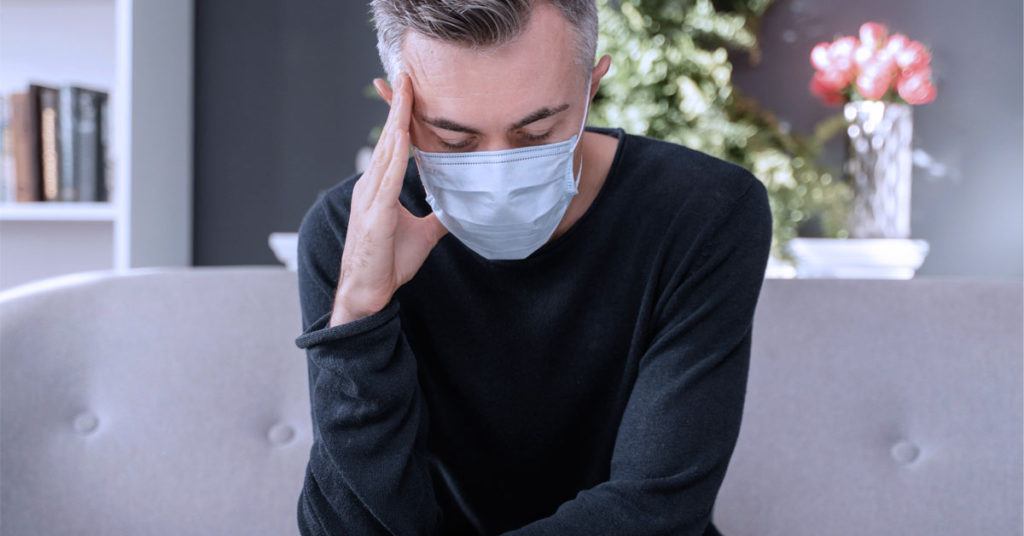The COVID-19’s Gifts of Depression and Anxieties

Introduction
Depression occurs when a person does not accept his reality. But with the COVID-19 realities, who can blame you? One study conducted last December 2020 shows that 16.9% of every 1,879 Filipinos reported moderate to severe depressive symptoms. The factors for the depression of Filipinos are imposed quarantine, extended homestay and poor health status.
Imposed Quarantine, Extended Homestay and Poor Health Status
The harmful spread of the mutating COVID-19 virus has become a top concern of every country. It remains to be the top concern of Filipinos today. Related to the nascent COVID-19 vaccination, dire situations like loss of income and sick family members have developed daily. The Filipino has a strong communal and family culture. Unlike the Western culture, the Filipinos are more affected by what happens with their “kapwa-tao”. This communal sense brings up the issue on stigmatization surrounding depression. The genetic factor of mental health has imposed difficulty on the discussion of depression. The pre-pandemic stigma has effects on the social vocabulary of Filipinos on depression, anxiety and insanity. There is still a challenge to discuss embarrassing issues like your inability to take control of your life because of your poor mental health According to the National Center for Mental Health, there have been massive increases in the calls they receive in their hotline. The calls range from 80 calls per month before the quarantine started to almost 400 calls per month during the quarantine. What is the silver lining in this condition? Well, the pandemic becomes the most provoking factor to openly discuss mental health.
Extended homestay also causes depression and anxiety. Studies have emerged from different psychologists that prove that many people are diagnosed with depression because of this historical pandemic. From the pandemic’s economic impact, many people have been laid off from their companies. These companies are losing money than gaining. This pandemic has forced people to face harsh realities like losing jobs, going hungry and losing loved ones. Losing job is not only a matter of losing source of money but losing the resources of activities and confidence in your skills. No matter how the employee explains that the retrenchment is not a sign of bad performance of an employee, it is still a hard feeling to accept that you cannot control the circumstance of your employer’s financial loss. With regards to the younger population, the KFF reported that young adults have experienced closures of universities that may contribute to poor mental health. Other factors such as substance use and recurring suicidal thoughts also worsen mental health conditions. The main takeaway here is that the job loss, grieving family and new schedule are not suitable for combination with extended homestay.
Poor health status strongly affects mental health. What is psychological is biological. The Center for Disease Control and Protection has also addressed this matter just this year, where COVID-19 has had a significant effect on your lives. The public health actions of social distancing are necessarily helpful in preventing the virus’s spread. However, it has affected our way of interactions with people and can make us feel isolated or lonely. We are connected and yet there’s still a difference in actual meetings with friends and hearing real laughter’s from your loved ones.
Understanding Depression and Anxiety
You are not alone in this. The COVID-19 pandemic has brought the world’s craziness to a whole new level. While depression and anxiety can make you feel like you are losing your mind, it does not necessarily mean that you are a diagnosed crazy. Depression and anxiety can be treated.
What is depression? Depression is a mood disorder that causes persistent feeling of sadness. You can experience isolation, alienation and profound loss of interest in things that usually bring you pleasure. There are seven types of depression, major depressive disorder, persistent depressive disorder, bipolar disorder, postpartum depression, premenstrual dysphoric disorder, seasonal affective disorder and atypical depression. When we hear about “clinical depression”, the word generally refers to major depressive disorder. The key features of clinical depression are: depressed mood, changes in weight, fatigue, lack of interest in activities normally enjoyed, changes in sleep, feeling of worthlessness and guilt, difficulty concentrating and thoughts of death and suicide.Depression is different from anxiety. The common symptoms of anxiety disorder are irrational fears, panic attacks, avoiding social situations, tense muscles, trouble falling or staying asleep, irritability, difficulty concentrating, fatigue, restlessness excessive worrying and feeling agitated. Depression and anxieties are signs of poor mental health and not necessarily signs of mental illness. Before you consider yourself as mentally ill, do not self-diagnose but consult a professional mental health practitioner first. The title of this blog sounds insensitive. Just to be clear, this blog is not promoting toxic positivity. Likewise, having a negative mindset is also not the solution. The trick is to balance: What remains good in this situation?
Conclusion
The gift of this situation is that there are actually trained psychologists in the Philippines who are willing to reach out. You can easily talk to anyone with the boom of the social media. However, it is important to distinguish the line between who can actually show empathy and sympathy. Your friends may sympathize with how you feel but it takes a trained professional to empathize with the real situation that you are going through.This is where MyPocketDoctor comes in. The company has trained psychologists who can assist you if you are experiencing anxiety and depression. The company understands that travel and budget can be constraining during this time. That is why these concerned individuals offer affordable rates with just one call away. You may contact MyPocketDoctor through their Facebook page and/or chat with their agents on their website www.mypocketdoctor.com. Likewise, you may check the Frequently Asked Questions (FAQs) through this link.
Reference
1) www.ncmh.gov.ph
2) www.pubmed.ncbi.nlm.nih.gov
3) www.cdc.gov
